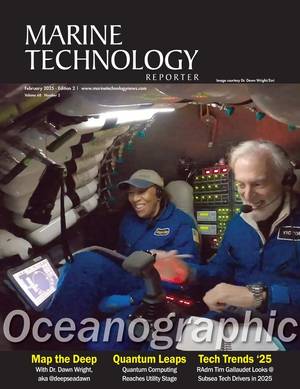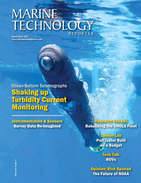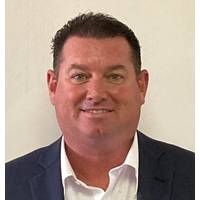
Phoenix Hires Sonnenberg as Norfolk GM
company Phoenix International Holdings, Inc. announced that Michael Sonnenberg has joined the company as general manager of its Norfolk, Va. office.As a U.S. Navy Master Diver, Master Chief, and Master Training Specialist-Instructor, Sonnenberg brings to Phoenix 29 years of experience in air and mixed gas diving, salvage and underwater ship husbandry. He holds a Bachelor of Science Degree in Organizational Leadership from Thomas Edison State University.Patrick Keenan, Phoenix president, said, "Michael Sonnenberg brings to Phoenix significant program management and leadership skills and the
Phoenix Bags $97m SUPSALV Contract
Phoenix International Holdings Inc. (Phoenix) won a $97 million (maximum value) contract to provide diving and diving related services to the United States Navy. The primary purpose of this contract is to deliver operational, engineering and technical support to the Navy's air, mixed gas and saturation diving services program overseen by the Naval Sea Systems Command’s Office of Director of Ocean Engineering, Supervisor of Salvage and Diving (SUPSALV).The Naval Sea Systems Command, Washington, District of Columbia, is the contracting activity.
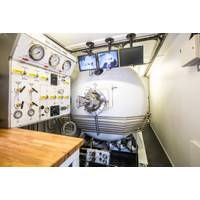
SMP Delivers Air/Gas Diving Spread for GloMar Subsea
manufactured and supplied a bespoke air/gas diving spread unit for an international subsea service contractor. GloMar Subsea approached SMP to design, develop and manufacture a fully certified 20-foot containerized recompression support chamber, alongside a 20-foot all-inclusive machinery and mixed gas dive control, to support its offshore diving activities. The entire bespoke project was designed, fabricated, painted, assembled and tested by our team of design engineers and workshop technicians at SMP’s site in Preston, Lancashire. The air/gas diving spread comprised
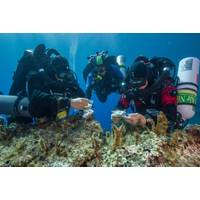
Researchers Recover Treasures from Ancient Greek Shipwreck
high-tech, collaborative project brings robots, technical diving, and new laboratory analyses to this remarkable shipwreck. After precisely mapping a 10,500-square-meter (2.6 acres) area of sea floor around the wrecks with an autonomous robot, the team’s divers descend to 52 meters (170 feet) using mixed-gas, closed-circuit rebreathers to exactly locate, document, and retrieve the artifacts. Among other inquiries, the isotopes of recovered lead objects are analyzed to determine their origin, and ancient DNA is extracted from ceramic jars to reveal the food, drink, and medicines consumed by the ancient
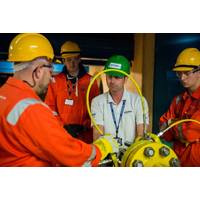
Subsea Cener to Deliver Enhanced Diver Training Courses
their decompression chamber and saturation and air diving systems. The IMCA ALST certificate is seen as a good springboard to getting offshore - the majority of ALSTs work in this sector. This course will provide students with practical experience and exposure to a real saturation system, with mixed gas divers in training. Chris Barratt, Senior Trainer at Stork, added: “The one day Subsea Bolt Tensioning Course, or more commonly known as the MJI 21 Course, is a fundamental skill required within the commercial diving industry. Developed from the ECITB technical training standard
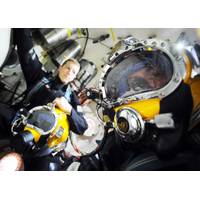
Subsea Training Center Preps for Diving Regulations
has come from industry agreement, from the IDRCF (International Diving Regulators and Certifiers Forum) and with input from IMCA (International Marine Contractors Association). Industry agreed to make this change because of feedback that air divers training to become saturation or mixed gas divers sometimes lacked enough diving experience. Alf Leadbitter, Dive Training Authority at The Underwater Center, who has been training commercial air and mixed gas divers for over 30 years, and contributed to the working group set up by the IDRCF, believes the changes are a positive
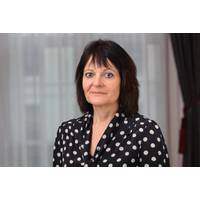
IMCA Revises Diving Guidance
use, rather than restrict it to North Sea use. It was also decided to split it into separate documents, one for surface diving (IMCA D 023 published 2000) and the other for saturation diving (IMCA D 024 published 2001). “Subsequently documents were issued in 2006 for surface supplied mixed gas diving (IMCA D 037) and mobile/portable surface supplied diving (IMCA D 040) and in 2014 for hyperbaric reception facilities (IMCA D 053). IMCA D 024 for saturation diving systems was revised and updated to Rev. 1 in 2013 and to Rev. 2 in 2014. IMCA D 023 was revised and updated to Rev. 1 in 2014
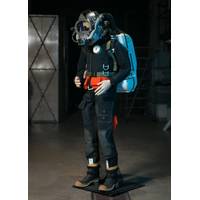
Navy Develops Prototype for Diver Life Support
Principal Investigator Dr. John Camperman. "And where possible we also incorporated proven technology in the system in order to speed transition to operators." Currently, U.S. Navy mobile diving and salvage units meet their requirement for manned diving operations with the Fly-Away Mixed Gas System (FMGS). The FMGS provides breathing gas through an umbilical to a demand regulated, open circuit, diver-worn helmet. In each breathing cycle all inhalation is from surface supplied gas, and all exhalant vents to the sea. In the process a large portion of oxygen and helium are wasted.
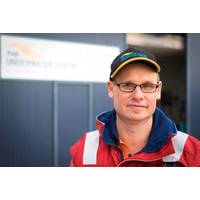
The Underwater Center Names Loudon Diver Trainer
construction projects on a variety of repair, inspection and maintenance jobs - including piers, pipelines and dams - David will be able to advise students on many aspects of the work they are likely to encounter in their diving careers. The Underwater Center, Tasmania, offers both air and mixed gas (saturation) commercial diver training, as well as practical, hands-on ROV pilot technician training, launched in 2014 to provide pilot technicians and diving students first-hand experience of working alongside one another. “My new role at The Underwater Center is training our students
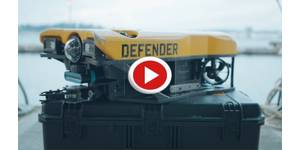
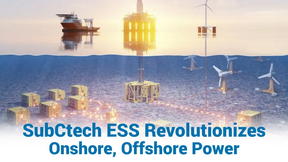
 February 2025
February 2025
